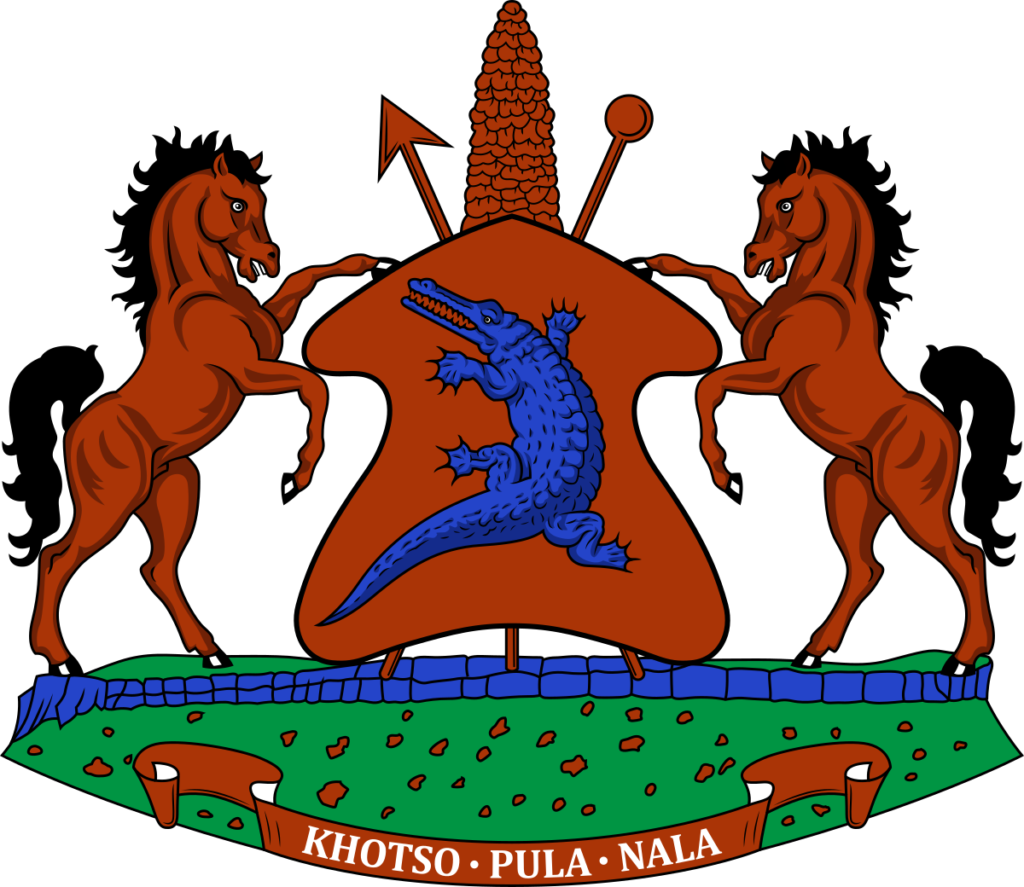Your Lordships,
It is otherwise prudent that I observe protocol as already articulated by my learned senior, The Honourable Attorney General. I have been reliably informed that my predecessors who addressed this Honourable Court on this occasion had grey-hairs and deeper voices than me. I will ask the court to take judicial notice of the fact that in no more than 10 years I will have developed the same.
I will first ask that I be given the opportunity to steal a moment to reflect on two most significant factors that left a huge gap in the doughnut of the legal profession. Legal practitioners from all walks of life mourned the passing away of the former president of the Law Society – Mr. Thabang Thabang Khauoe. I’m not desirous of saying much about him lest I dilute the substance of all that was said in his honour during his funeral. I cannot help it but recall one significant moment which I had with him. I presented to him a salient question that any aspirant legal practitioner in my position then would pose. It went as thus: ‘How can one win a case before the court of appeal?’ He tendered a number of responses and I am not desirous of divulging the entire details lest your Lordships identify my antics. He replied that before addressing your Lordships I should first share a humorous remark or make a jocular statement. He indicated that if your Lordships do not smile or find my humour appealing, I should then indicate that I am not going to make any further submissions other than those in my heads of argument. I should quickly indicate that I have no further submissions and then sit down to witness dark clouds falling on my shoulders. I then began to introspect on this piece of valuable advise because I know how members of this honourable profession think and act. I knew I ran the risk of being asked by the bench, ‘What is your authority for that joke?’ I further knew that the jocular statement could either be obiter dictum or ratio decidendi.
Your Lordships, it is in this austere sense of humour that I recall and would like to remember my learned senior and mentor Mr. Khauoe. May his soul rest in peace. In no more than a month ago, the former president of the Law Society and my predecessor, my learned senior Adv. Zwelakhe Mda officially bid farewell to his post at the helm of the organisation that he had served for a period extending to a decade. My learned senior served this profession and engaged in endeavours to uphold the rule of law in all courts inclusive of the present one with all the enthusiasm and vigour. I am enjoined in like manner to honour him on behalf of all the members of the profession. I and many of my colleagues in practice owe an inexpressible debt to him and to his predecessorsI am going to decline to articulate some of the most humorous moments I had with him, lest I be accused of turning this rare moment into a comical one.
Your Lordships,
I will strive on this occasion to speak about things that matter to the profession, I shall do so, but only in part. For what I want to talk about today is a common malaise: a lack of critical introspection across the face of legal life in this jurisdiction. My humble thesis is that, for all lawyers, there are disturbing developments about which we are insufficiently articulate and active. I’ll ask that I be allowed to illustrate my point with scattered examples from three different areas of our shared complacency. The first concerns adjudication. The second concerns legal practice. And the third concerns the academia, what they do in legal education and what we, the legal profession, do or should ourselves do in legal education.
Time does not permit today to speak in detail of the many challenges with which I believe courts in Lesotho are confronted with. I would however like to say two things in this respect. The first is that it is time to end an approach which is insufficiently rigorous in the scrutiny of the judgments of this Honourable court, and how they function.
I do not mean by this that there should be anything less than professional respect for judges, and least of all that there should be the kind of attacks on courts, chiefly by political figures, which from time to time have been manifested.
But other than the writings of a few law teachers in the faculty of Law in the National University of Lesotho, What probing critique has there been in the last few years of the work of this Honourable Court as the highest and last resort for litigants? It is perhaps prudent to commend among others the detailed exegesis of my learned senior Advocate K.K. Mohau K.C. on this Honourable Court’s decision in Mothobi v. Sebotsa.[1] A publication which is showcased in the venerable Lesotho Law Journal[2] – This case commenced in the High Court as an action for an order of specific performance of a contract of sale of rights in immovable property. The purchaser sought an order directing the heir of the lady who had sold him her rights in some immovable property, to sign all documents necessary to effect the transfer of the lease over that property into his names. The ‘agreement’ sued upon was a verbal one allegedly concluded in 1982; and the summons for its enforcement was only issued in June 2005, some twenty three years after the agreement had been concluded. This was after the alleged buyer had taken occupation of the premises and rented them out to his own tenants immediately after the conclusion of the purported agreement. The High Court granted the orders sought but, on appeal, this Honourable Court set aside the orders of the High Court and substituted in their place, an order dismissing the claims with costs. The decision sparked a concern amongst legal practitioners and raised two issues of paramount importance to dealings in rights to land in Lesotho namely:
- Whether in terms of section 35 (1) (b) (i) read with section 36 (5) of the Land Act, 1979 ministerial consent has to be obtained prior to concluding a contract on rights to land;
- and, whether a buyer can litigate to compel a seller to apply for ministerial consent.
This Honourable Court answered the first question in the affirmative and the second in the negative. Whilst, on the specific facts of the case under review, the decision cannot be faulted, it is the blanket scope of the agreements caught out by the court’s interpretation of the relevant provisions of the Land Act, 1979 that is a glaring cause of concern. The learned Advocate K.K. Mohau K.C. then concludes in his detailed and comprehensive exegesis by remarking as thus:
…the Court, in my respectful submission, clearly erred in interpreting section 35(1) read with section 36 (5) so as to indiscriminately invalidate every agreement for the sublease, mortgage or transfer of rights in immovable property made without prior ministerial consent.
It is otherwise significant to indicate that academics clearly provoke comments and criticism on judgments delivered by the Judiciary. The critical academia clearly secures the notion of judicial accountability. They act as watchdogs, anxious to ensure that the judicial process moves in the right direction and serves the needs of the Basotho society. Thus, wherever a judgement is delivered which is contrary to constitutional values and adverse to the interest of society, law academics must as a matter of necessity criticize it strongly and point out how the judiciary failed to discharge its accountability to the people. Of course, the criticism should be in temperate language and directed at the judgement and not against the judge, for the credibility of the judge must not be affected.
The view of the Law Society at present is that it is by all means important that we explore the aspect of judicial accountability which is the reverse side of the coin of judicial independence. The notion of accountability permeates public life. Judicial officers are servants of the public. It follows that they should be accountable for the manner in which they perform their duties. We clearly live in an era of greater public demand for accountability of the judiciary. It is clearly no longer considered a sacrosanct and inviolable haven of its occupants.
The recent challenges that this country has endured in the judiciary leave quiet a lot to be desired and they are all common cause. So, the question now is not whether there should be judicial accountability but how judicial accountability can be balanced with judicial independence. The two should be perceived as complimentary. The learned senior Advocate K.A. Maope K.C.emphasized this aspect in the launch of the recently published book of all the memorial lectures of the late Justice Mofokeng of which he must be commended for being the editor. One cannot help it but lend credence to my predecessor and learned senior Advocate Mda’s lamentation in his previous speech to this Honourable court whereupon he highlighted what I would want to term as the discomfort of the law society over the consisted display of concurring judgments of this Honourable Court. The views which we hold as the law society are based on the principle that dissent in any public policy environment is just as essential as adherence; it may otherwise be dangerous when unanimity is made the order of the day. It is not per say dangerous that dissent fails; what is dangerous is when a whole generation of members of the bench pass judgments without dissent.
It would be remiss of me if I were to ignore the powerful words of one highly esteemed Australian Judge, Sir Frank Kitto whose dictum went as thus:
Every judge worthy of the name recognizes that he must take each man’s censure; he knows full well that as a judge he is born to censure as the sparks fly upwards; but either in preparing a judgement nor in retrospect may it weigh with him that the harvest he gleans is praise or blame, approval or scorn. He will reply to neither; he will defend himself not at all.
Another area of concern is the one which binds us all together. It is the proper relationship, and respective responsibilities, as between the judiciary, the organized profession, the teachers of law and all the institutions that facilitate the administration of justice. The council of the Law Society put in motion a stakeholders conference which is an all inclusive forum engaging the Bench of the High Court under the leadership of the Chief Justice, the Attorney General, the Director of Public Prosecutions, the Dean of the Faculty of Law from the University of Lesotho and a number of senior legal practitioners with insight and institutional memory. We also received a warm invitation from the Honourable President of this Honourable Court to be a part of the progressive initiatives and for that we are both indebted and humbled. There are no periods of energetic collective efforts to produce these activities, outbursts of unusual creativity spawned by the legal academia, the judiciary, the law society and the many other relevant stakeholders – regrettably one is inclined to draw the conclusion that the biggest challenge has always been that of lack of cohesion and dialogue amongst the vital stakeholders in the legal profession in this jurisdiction.
Before I delve into the said issues, I am kindly going to present a sombre tale that reflects on the legal profession in this country and the most glaring challenges which present themselves within the public policy environment. I am inclined to begin on this score because the public policy aspect or interest permeates every question the Law Society has to answer; every policy the Society promotes and every step that we may have taken. The public interest aspect has to be emphasized because the Law Society is the regulator of lawyers and is not, and never has been, directly or indirectly, a representative of their individual interests. A few months ago a disciplinary hearing was convened by my learned senior Mr. Mda and myself against a member who had been alleged to have been engaging in acts of malpractice. It was alleged that the member was commissioning and certifying documents not so far away from this Honourable court, perhaps just 15 metres from this Honourable Court, that is – the passport office, where he was charging a fee of M5 for his exploits. This lawyer did not have an office and neither was he conducting this transaction in a professional climate best fitting of a legal practitioner. The member’s defence to the charges waged against him among many others was that he was unemployed and there was absolutely no avenue for him to sustain himself except by engaging in those activities which at face value, can be safely categorised as acts of malpractice and disrepute of the profession. I subsequently learnt of a sordid tale that surrounded his life, but I shall ask that I be allowed not to get into the gory details. It is from this case alone that we have to ponder over the role of the law society in so far as the dimension of enforcement of discipline is concerned, and it is within this context that we have to explore the details and complexities that the professional climate has yielded for most lawyers in this country. When a fully qualified lawyer has to struggle to earn a living to that extent in order to feed an empty stomach, can we still categorise that activity as a form of malpractice? Can we safely classify the conduct of this member as an act of professional misconduct or a desperate socio-economic activity? My learned senior Mr. Mda and I were stuck in a limbo when we were forced to mete out punishment against this member. If qualified lawyers themselves are walking on edges and on dire straits, what more can be said about the ordinary Mosotho man walking the streets? My Lords, I have had to ponder over this issue from a purely small scale ecological vision of human life and not from a parochial lawyer’s perspective. These issues are not legal issues but purely human issues that we have to reflect upon. Apart from evident social challenges, there are legal issues which necessitated recent judgements of this Honourable Court which prompt one to make a proposition that our constitution should be amended to cater for socio-economic rights as is the case with our South African counterparts. The decision of this Honourable Court in Bulane Andrew Sechele v. Public Officers Defined Contribution Fund and Others[3]stands out as yet another illustration that as members of a society whose description falls within the scope of developing countries, the infusion of socio-economic rights in our constitution is a necessary avenue. May I further ask that I be allowed to reflect on the decision of the Court of Appeal of Botswana over the right of access to water of the Basarwa community based in the Kalahari desert, authored by the president of this Honourable Court. Thegovernment argued that it was not obliged to provide communities inside the reserve with water and other basic services or to restore the services that it had cut off. Nor would the communities be allowed to re-commission the borehole themselves, or contract anyone else to do so. The Court delivered a succinct—and devastating—appraisal of the government’s attitude: “Government seems to be saying to the appellants: you can live in your settlement in the [Central Kalahari Game Reserve] as long as you don’t abstract water other than from plants.”
In upholding the community’s right to re-commission the borehole at Mothomelo and to sink other boreholes for domestic purposes, the Botswana Court of Appeal crafted a judgment that is a model of lucid thinking and writing—and one that demonstrates explicit empathy for those whose rights have been violated. In one poignant—and for the government, particularly damning—section, the court “observed at once that it is a harrowing story of human suffering and despair caused by a shortage of water in the harsh climactic conditions of the Kalahari desert, where the applicants and their ‘Basarwa’ community live.” This represents a radical departure from judicial norms prevailing in most of southern Africa, where it is uncommon for judges to rely on international treaties and norms, and where the enforcement of socio-economic rights is often regarded as a thorny issue best left to the discretion of the Executive.
The Court of Appeal in Botswana has now demonstrated that it is willing to take into consideration non-binding—but profoundly important—statements emanating from the emerging international consensus on the fundamental importance of socio-economic rights to the fulfillment of human dignity. This is also said against the background of yet another locus classicus case of Khathang-Tema Baitšokoli in which this Honourable Court pronounced itself in clear and comprehensive terms. Our humble views as the Law Society is that we are in desperate need of legal practitioners who can best institute litigation which is of a public policy nature and the bench that fully appreciates and acknowledges the vitality of international instruments which serve the objective of the infusion of socio-economic rights. We as lawyers can only effectively work for policy transformation by instituting litigations before courts which have a broad societal relevance.
Why am I inspired to emphasize this aspect on this particular occassion? It will be noted that a courageous lady who instituted a constitutional case in South Africa Irene Grootboom was the woman whose name became known around the world for enforcing the state’s obligation to respect socio-economic rights, especially of the homeless. Yet, when she died this past few weeks in her forties, she was still homeless and penniless.
Your Lordships
May I on the last note before I rest echo my sentiments, perhaps in hindsight – over the recently promulgated Administration of the Judiciary Act of 2011. It is assumed that this Act provides amongst many other objectives for the establishment of an autonomous administration of the Judiciary, a Judicial Service and for a budget of the Judiciary. Our views as the Law Society is that institutional autonomy is not sufficient if it is not juxtaposed with the decisional independence of the members of the bench. The test of decisional independence is this: Does the judge enjoy independence of mind and body free from external influence while discharging the functions of his or her office so that nothing untoward follows from his pronouncements and utterances or even his judgments?This perhaps calls for debate on some other forum.
I cannot help it but remember what one judge said to me when I had not done justice to my work and making somewhat frail arguments as I was addressing the court:: “I know you can’t help your laziness, but you should really try to do something about your stupidity”.
On this score I ask that I be given the opportunity to hide behind the veil of my laziness and stupidity.
As the court pleases!





